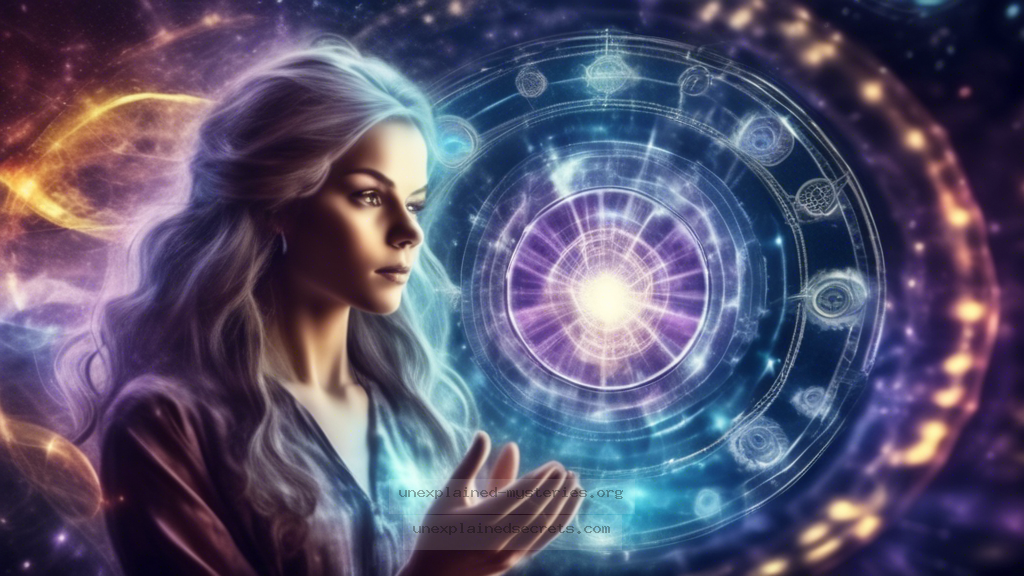Can Psychic Abilities Be Scientifically Verified Through Documented Cases?
Can Psychic Abilities Be Scientifically Verified Through Documented Cases?
The question of whether psychic abilities exist and can be scientifically verified has intrigued humanity for centuries. From the ancient sages who claimed to predict the future to modern psychics who offer insights into the lives of others, the phenomenon of psychic abilities remains a tantalizing mystery. This blog post delves into the fascinating world of documented cases, scientific testing, and the ongoing debate surrounding psychic phenomena. We will explore historical accounts, examine core concepts and theories, and discuss the practical implications of psychic abilities, as well as alternative perspectives and common misconceptions. By the end, you will have a clearer understanding of this enigmatic subject and the current state of research surrounding it.
Historical Context of Psychic Abilities
The concept of psychic abilities dates back thousands of years, with references found in various cultures. Ancient civilizations such as the Greeks and Egyptians believed in the existence of oracles and seers who could divine knowledge beyond the physical realm. For instance, the Oracle of Delphi was renowned for its prophecies, which were said to be delivered by the priestess Pythia, channeling the god Apollo. These early accounts set the stage for centuries of fascination with the paranormal, culminating in the modern era where psychic phenomena are often scrutinized through the lens of science.
In the late 19th and early 20th centuries, spiritualism gained popularity in the Western world. Figures like Edgar Cayce and Madame Blavatsky claimed to possess extraordinary abilities to heal, predict the future, and connect with the spirit world. However, as interest in psychic phenomena grew, so did skepticism. The advent of scientific methods led to rigorous testing of psychic claims, resulting in a dichotomy between believers and skeptics that persists today.
Core Concepts and Theories of Psychic Abilities
At the heart of the discussion around psychic abilities are several core concepts that attempt to explain how these phenomena might occur. Theories range from the notion of an interconnected consciousness to the influence of quantum mechanics on human perception. One of the most notable theories is the concept of “anomalous cognition,” which suggests that some individuals may have the ability to acquire information without using known human senses.
Another prominent theory is the idea of “entangled consciousness,” paralleling the principles of quantum entanglement. Some researchers propose that just as particles can be interconnected regardless of distance, human consciousness may also be linked in ways not yet understood. This theory is still in its infancy and requires further examination, but it provides a potential framework for understanding psychic phenomena through scientific principles.
Documented Cases of Psychic Phenomena
To assess whether psychic abilities can be scientifically verified, we must examine documented cases that have been rigorously studied. One of the most famous examples is the case of Uri Geller, who gained worldwide attention in the 1970s for his alleged ability to bend spoons and perform telepathy. Geller participated in several scientific tests, notably at Stanford Research Institute, where he was subjected to controlled experiments. While some results appeared to support his claims, critics argue that the findings were inconclusive, and his methods lacked rigorous scientific validation.
Another compelling case involves the work of Dr. Dean Radin, a prominent figure in parapsychology, who has conducted numerous studies on the effects of intention on random number generators (RNGs). His research has shown statistically significant deviations from chance, suggesting that focused intention may influence physical systems. However, such findings remain contentious within the scientific community and require further verification.
Scientific Testing of Psychic Abilities
Scientific testing of psychic abilities has evolved considerably over the years. Modern parapsychology employs a range of methodologies, including double-blind experiments, controlled environments, and statistical analyses to minimize bias and enhance reliability. The Ganzfeld experiment is one such study designed to test telepathy, where a “sender” attempts to transmit information to a “receiver” in a sensory-reduced environment. Results have been mixed, with some studies reporting positive outcomes while others have failed to replicate these findings.
Practical Implications and Evidence
The implications of verifying psychic abilities extend beyond mere curiosity. If proven, such abilities could revolutionize fields like medicine, psychology, and even law enforcement. For example, psychics have been consulted in criminal investigations, often claiming to have insights that lead to solving cold cases. While anecdotal evidence exists, systematic studies have yet to substantiate such claims, leading to debates about their validity.
Alternative Perspectives on Psychic Abilities
While many researchers strive to understand psychic phenomena through a scientific lens, alternative perspectives often emphasize spiritual or metaphysical explanations. Some proponents argue that psychic abilities are inherent to all humans and can be cultivated through meditation, mindfulness, and spiritual practices. This viewpoint suggests that psychic phenomena may not be anomalies but rather a natural aspect of human experience that society has largely overlooked or dismissed.
Furthermore, cultural contexts play a significant role in shaping beliefs about psychic abilities. In many indigenous cultures, psychic phenomena are integrated into spiritual practices and community life, viewed not as extraordinary but as part of the human experience. This perspective challenges Western paradigms that often dismiss psychic abilities as pseudoscience.
Common Misconceptions and Clarifications
As with any contentious topic, several misconceptions surround psychic abilities. One common myth is that all psychics can provide accurate readings or predictions. In reality, the accuracy of psychic claims varies widely among individuals, with some exhibiting genuine abilities while others may employ tricks or intuitive guesses.
Another misconception is that psychic abilities are synonymous with supernatural powers. Many researchers argue that psychic phenomena, if they exist, may stem from untapped aspects of human consciousness rather than supernatural forces. This distinction is crucial for fostering a more nuanced understanding of the subject.
Best Practices for Investigating Psychic Phenomena
If you wish to explore psychic phenomena further, consider adopting a systematic approach. Start by familiarizing yourself with the foundational texts of parapsychology, such as “The Conscious Universe” by Dean Radin and “Parapsychology: The Science of Unusual Experience” by Richard Wiseman. Engage with reputable research studies and remain open to both supporting and contradictory evidence.
When conducting personal investigations, maintain a critical mindset. Document experiences meticulously, considering variables that may influence outcomes. Joining a parapsychological organization or attending conferences can also provide valuable insights and networking opportunities with other researchers and enthusiasts.
Future Developments and Ongoing Research
The field of parapsychology continues to evolve, with ongoing research exploring the boundaries of human consciousness and psychic abilities. Emerging technologies such as brain imaging and biofeedback are being utilized to study the neurological correlates of psychic phenomena, offering new avenues for understanding these complex experiences.
Moreover, interdisciplinary approaches that integrate psychology, neuroscience, and quantum physics are gaining traction. Such collaborations may yield fresh perspectives on the nature of consciousness and its potential connections to psychic abilities. As societal acceptance of alternative paradigms grows, we may witness a shift toward more comprehensive investigations of these phenomena.
Conclusion
The question of whether psychic abilities can be scientifically verified remains a captivating topic of discussion. While documented cases and scientific tests have produced mixed results, the ongoing exploration of psychic phenomena invites both curiosity and skepticism. Understanding the historical context, core concepts, and alternative perspectives enriches our comprehension of this enigmatic subject.
As we continue to investigate psychic abilities, we must remain open to the possibilities while adhering to rigorous scientific standards. Whether one believes in the existence of psychic phenomena or not, the quest for knowledge and understanding is what fuels this enduring mystery.
Other Articles
Recent Posts
- What Happened to Flight MH370? The Conspiracy Theories That Still Haunt Us
- What Secrets Lurk Within the Walls of the Infamous Trans-Allegheny Lunatic Asylum?
- What Evidence Supports the Existence of Bigfoot in the Pacific Northwest?
- What Happened to the Indus Valley Civilization? Unraveling the Mysteries of Ancient Urban Life
- Can Telepathy Be Scientifically Proven Through Laboratory Evidence?







